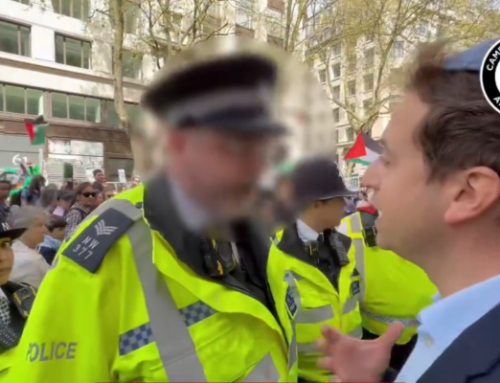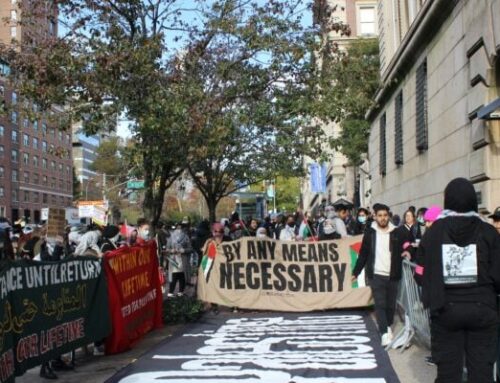The signs are everywhere. Every day. All day long. Some are small. Some are large. All are visible and audible. All one needs to do is look. Listen. And understand. Not as the world in darkness does. As those led by the light and truth of the Word of God, renewed of mind and spirit are able to by the grace of God and the working of the Holy Spirit.
Ken Pullen, A CROOKED PATH, Wednesday, August 10th, 2022
Censorship on campus: universities scrap ‘challenging’ books to protect students
Times investigation reveals institutions are removing books containing suicide and slavery from reading lists
Tuesday, August 09, 2022
By Paul Morgan-Bentley Head of Investigations | James Beal Social Affairs Editor
Reprinted from The Times [London]
Universities have started removing books from reading lists to protect students from “challenging” content and have applied trigger warnings to more than 1,000 texts, a Times investigation has found.
Ten universities, including three from the Russell Group, have withdrawn books from course study lists, or made them optional, in case they cause students harm.
The texts include the 2017 Pulitzer Prize-winning novel The Underground Railroad, by Colson Whitehead, which has been “removed permanently” from a course reading list at Essex University because of concerns about graphic depictions of slavery.
The classic play Miss Julie, by August Strindberg, has been withdrawn from an English literature module at Sussex University because it includes discussion of suicide.
English students at Aberdeen University are also told they can opt out of discussions on a module about Geoffrey Chaucer and medieval writing as the course “sometimes entails engagement with topics that you may find emotionally challenging”.
The findings come from a comprehensive audit by The Times of reading lists at campuses, amid concerns that universities are limiting what they teach for fear of upsetting or offending students.
This newspaper sent almost 300 freedom of information requests to officials across all 140 UK universities asking for details of trigger warnings and of texts removed from reading lists because of concerns about their content.
Two universities, Essex and Sussex, admitted to removing books from study lists for this reason, the first time this is thought to have happened at British universities.
Eight others, including Russell Group members Warwick, Exeter and Glasgow, have made texts optional to protect students’ welfare.
Academics have previously been criticised for providing trigger warnings for students reading mainstream literature. The Times investigation found 1,081 examples across undergraduate courses.
Some of Britain’s most influential authors — including William Shakespeare, Geoffrey Chaucer, Jane Austen, Charlotte Brontë, Charles Dickens and Agatha Christie — are among those whose works have been deemed concerning enough to require warnings.
There may well be more instances of lecturers protecting students from challenging literature. Academics attempted to block this newspaper from discovering details about changes to their reading lists, using social media to encourage each other not to comply with requests for information. Some universities refused to disclose any information because of the “potentially negative personal impact” on staff.
Liz Truss, the Conservative Party leadership candidate, said: “Universities should not be mollycoddling students like this, it patronises them and is not good for wider public debate. A good education should be underpinned by a free exchange of speech and ideas not constrained by left-wing group think.
“Real life doesn’t come with a content warning — we can’t protect people from difficult ideas for their whole lives, nor should we try to.”
Sir Trevor Phillips, chairman of the Index on Censorship, a campaign group, said withdrawing books to protect students from difficult content, such as descriptions of slavery, was “fatuous, patronising and profoundly racist”, adding: “It is part of a wider wave of censorship on British campuses.”
Not safe for study
Books removed or optional because of challenging content
| Essex | The Underground Railroad, Colson Whitehead |
Removed permanently from a “Beginning The Novel” module “Graphic description of violence and abuse of slavery” |
“Lucy and Titania never spoke, the former because she chose not to, and the latter because her tongue had been hacked out by a previous owner.” |
|---|---|---|---|
| Sussex | Miss Julie, August Strindberg |
Removed from a “Reading Literature” module “Contains discussion of suicide” |
“I believe if the Count came in here now and told me to cut my throat I would do it on the spot.” |
| Aberdeen | A Girl is a Half-Formed Thing, Eimear McBride, and two others |
Can be switched for an alternative text on a “Vulnerable Bodies, Precarious Lives” module “Graphic depictions of sexual violence and suicide” |
“I met a man. I met a man. I let him throw me round the bed. And smoked, me, spliffs and choked my neck until I said I was dead.”
|
Books on slavery too ‘graphic’
For English students at the University of Essex, a module titled Beginning the Novel is an opportunity to study some of the most celebrated modern writers, including Sally Rooney, Zadie Smith and Deborah Levy.
Until recently, the course for final year undergraduates also involved reading Colson Whitehead’s novel The Underground Railroad.
However, the widely acclaimed book about slavery has since been permanently removed from the reading list. After discussions within the university’s literature department, the decision was taken that Whitehead’s novel should be withdrawn because of its “graphic description of violence and abuse of slavery”.
Elizabeth McGregor, 22, is among those at the University of Essex who studied the Beginning the Novel module this year. She had not been informed that it previously included The Underground Railroad.
“We have been told a few times that we can choose whether or not to read texts, often when the themes are about race, slavery or gender,” she said. “They think we are children and are coddling us.”
McGregor told of being silenced by a teacher in a seminar for offering a different view on a character who had been described to them as sexist. “It was to do with gender roles and I said biological differences were also potentially important, and maybe the character wasn’t sexist, and I got this look from the teacher. She completely shut it down. She argued against it and then stopped me from speaking. I felt like my voice was not welcome,” she said.
The University of Essex said it could only take action when informed by students of complaints. It said it encouraged “open and frank discussions in our seminars” and this included “convening difficult and sometimes uncomfortable conversations”.
The university said The Underground Railroad had only been removed from one reading list for a module on the development of the novel form for creative writing students. It added that this decision was partly made because “another book was viewed as better suited to the learning aims”. A spokesman said the book was still available in the university library, remained an option for future reading lists, and that students were exposed to the violence of slavery in other modules, including ones that could be taken by students on the same undergraduate course. He added the university used content warnings because ‘“we find it helpful and considerate to tell students about the issues that might come up in books or plays they are reading”.
The Times FOI requests to universities asked for details about any texts removed from reading lists since 2019 because of concerns about their content.
At the University of Exeter, there also appears to have been hesitation about exposing students to the horrors of slavery. In its FOI response, it stated that undergraduate students of late 18th and early 19th century literature are told they can choose not to read The History of Mary Prince as it “contains graphic accounts of racism, slavery, and extreme violence”. Students are warned about the content and, if any are concerned, they “are encouraged to contact the convenor to discuss alternatives”. A spokesman said no students had done so to date.
History students learning about the trans-Atlantic slave trade at Lancaster University are informed they can opt out of reading The Diary of Thomas Thistlewood because the text, which is a key testimony from a slave owner in Jamaica admitting to brutality, “contains detail regarding sexual assaults and extreme violence”. A spokeswoman for the university said this was the only text students could choose not to read without facing an academic penalty and no student has taken this option in the five years it has been taught.
Daina Ramey Berry, an expert on slavery and dean of humanities at the University of California, Santa Barbara, said: “What concerns me most is the desire to downplay, to sanitise, to soften the history of enslavement. There are real people who did these brutal things. It is important for people to know this happened and those people existed.”
Classic play removed and Charlie Hebdo branded ‘bigoted’
The University of Sussex’s FOI response stated that Miss Julie had been “permanently withdrawn” from an undergraduate literature module because it contains discussion of suicide. It stated that the decision was made after students complained about the potential “psychological” and “emotional effects” of the material. Miss Julie can be studied at A-level and is regularly performed across the UK.
At the same university, Kathleen Stock, the philosopher, resigned last year as a professor after being accused of transphobia and facing abuse because of her views on sex and gender.
Jack Ross studied at Sussex until 2019 and was president of the Conservative students society. He said: “I had a professor who informed the class that the Iraq war happened because white people wanted to kill brown people, and no one was able to challenge him. When another lecturer described Israel as aggressors, I put my hand up and said the situation was more complex than that and he started crying. I felt that I had to play the game to get good marks.”
Ross’s girlfriend at the time studied biology at Sussex and her teacher used a picture of Donald Trump to illustrate a cancer cell. “Why should politics come into biology teaching? It felt like there was constant brainwashing,” he said.
James Noble, a Conservative activist who completed a biochemistry PHD at Sussex University in 2019, said restrictions on freedom of speech on the campus had become “insidious”, adding: “It particularly affects students doing BAs in arts subjects. Some students have felt they got lower marks when expressing views that were different to the lecturers.”
The University of Sussex said it had “vigorously and unequivocally” defended Stock’s right to academic freedom and lawful freedom of speech. Its spokeswoman said all courses have books that are optional, as well as required reading, adding: “We will always encourage critical thinking and robust debate in the classroom, no matter how challenging, whilst also ensuring we support our students’ well being.”
The spokeswoman said the wording of the FOI response was incorrect and the removal of the text from a module reading list was temporary. She said the decision was in response to concerns following student suicides, that staff expected the text to be reinstated by next year, and that it has always remained on campus, including in the university’s library.
At Nottingham Trent University, students of French have been told they no longer have to study the satirical magazine Charlie Hebdo, which was the target of an Islamic terrorist attack in 2015 which killed 12 people, including journalists of the magazine and a police officer.
While there were no complaints about the material, academic staff decided that viewing the magazine should be optional as it is “racist, sexist, bigoted, Islamophobic”. In its FOI response, the university stated that making this text optional was a “permanent decision”. A spokesman did not respond to requests for further comment.
Prize-winning novels by women ‘particularly challenging’
At some universities, there appears to be particular concern about exposing students to themes covered by modern female novelists.
At Aberdeen, students on a course titled Vulnerable Bodies, Precarious Lives can choose not to read three of the course texts because they “may be particularly challenging” and include graphic depictions of sexual violence and suicide. Instead, they are offered alternatives.
The university’s FOI response stated that the course was designed with these options in mind and, while there had been no complaints about the novels, there had been “multiple conversations over the years with individual students who expressed concerns about these particular issues”.
The books that students can choose not to study are: All the Birds, Singing by Evie Wyld; A Girl is a Half-formed Thing by Eimear McBride; and Freshwater by Akwaeke Emezi.
At the same university, English students enrolled on a module about Geoffrey Chaucer and medieval writing can opt out of discussions about the content as it “sometimes entails engagement with topics that you may find emotionally challenging”.
A spokesman said alternative texts were offered “in a small number of optional courses” where the primary texts included sexual violence, as this can be deeply upsetting, depending on readers’ personal experiences.
They are also given content warnings that Shakespeare’s A Midsummer Night’s Dream “contains classism” and that The Classic Fairy Tales contains “cruelty to animals and animal death”.
A spokesman said its content warnings policy was developed with student representatives and enables staff “to explore controversial topics that could otherwise be difficult to address in an inclusive and supportive environment”.
At other British universities, academics have provided students with trigger warnings before studying The Bible, because of “shocking sexual violence”, and Oliver Twist, because of “child abuse”.
At Warwick, modern languages students are told they can choose not to read course texts including the German novels Die Mittagsfrau by Julia Franck, and Tomboy by Thomas Meinecke, which have been deemed to “gesture to provocative issues”. The novels are both on the reading list for a module titled Gender Trouble in Contemporary Germany and students can request alternatives.
In its FOI response, the university said this was a temporary decision “while we reflect on how best to incorporate difficult material into modules”. A spokesman said the university believes students should be exposed to challenging ideas. He added it does not ask departments to issue content warnings and less than one per cent of the university’s curriculum includes them.
Push to ‘decolonise’ the curriculum
The findings come after a report last month revealed that the number of students supporting restrictions on free speech on campuses has risen sharply in six years.
The study, from the Higher Education Policy Institute, compared the views of 1,000 full-time undergraduates to a previous cohort and found that many more now want to be protected from difficult viewpoints.
The Office for Students regulator has also reported that last year 193 speakers and events were rejected at English universities, a rise from 94 in 2019-20. Susan Lapworth, interim chief executive, told of her concern about the possibility that lawful but challenging views are being stifled.
In order for students from minority groups to feel better represented on campuses, there has been a growing student-led movement to “decolonise” education.
While this is meant to broaden academic study to incorporate different critical perspectives, there have been concerns about it resulting in historically significant texts being sacrificed.
Last year, the University of Leicester announced plans to stop teaching medieval literature to its English students because of “a drop in demand”, and instead offer a “decolonised” curriculum which is “excitingly innovative”, with more study of subjects such as sexuality, race and diversity.
Professor Isobel Armstrong, a fellow of the British Academy, resigned as an external examiner for the university as a result, writing at the time: “The work of diversifying the curriculum is an urgent challenge which all periods and subject areas in the humanities must step up to meet together: it is not advanced by narrowing provision.”
Reader discretion advised
Media with content warnings
| The Classic Fairy Tales | Aberdeen | Cruelty to animals and animal death |
|---|---|---|
| The Green Road, Anne Enright | De Montfort | Fatphobic content |
| Romeo and Juliet, Shakespeare | Essex | Contains inter-family violence, forced marriage, murder, suicide |
| Straight expectations: what does it mean to be gay today?, Julie Bindel | Glasgow School of Art | Her views…have seen her criticised as transphobic by some activists and writers |
| Nineteen Eight-Four, George Orwell | Greenwich | Contains self-injurious behaviour, suicide, animal cruelty |
Gavin Williamson, then the education secretary, also appeared to criticise the decision, saying universities “should not, whether for ideological reasons or to conform to the perceived desires of students, pressure or force teaching staff to drop authors or texts that add rigour and stretch to a course”.
Last month it emerged that Danielle Greyman, a recent graduate, was suing the University of Leeds for wrongly failing an essay she wrote because it did not criticise Israel. The essay, about crimes committed by Hamas terrorists against Palestinians, was initially criticised for not also referencing violence from Israel, but it was later reviewed on appeal by an external examiner and upgraded to a pass. The review took almost a year so Greyman was unable to take up a place on a Master’s course. Her lawyers have accused the university of negligence, discrimination and victimisation. The university said it strenuously denies the accusations of antisemitism and all proceedings will be fully defended, but further comment would be inappropriate given the matter is subject to legal action.
Academics discussed how to reject requests on social media
The Times discovered that academics had started removing supposedly challenging texts from reading lists after sending FOI requests about book removals and content warnings to all UK universities.
In some cases, universities refused to disclose any information, claiming that doing so would cause harm to their staff and was likely to “endanger physical or mental health”.
Bangor University said it would not share details of content warnings on English literature courses because staff were “very concerned about the potentially negative personal impact”.
Royal Holloway, University of London, declined to answer the questions because it would be “likely to endanger the physical or mental health of an individual”. The Times did not ask for any information about individual lecturers.
Kim A. Wagner, a history professor at Queen Mary, University of London, shared an image of one of this newspaper’s FOI requests with his followers on Twitter.
Alongside a photograph of the questions, asking for details about texts withdrawn because of concerns about their content, Wagner wrote: “While the world slowly burns, the rightwingers cheerily pursue their self-concocted culture war.”
Julian Wright, a historian and head of the humanities department at Northumbria University, replied that recipients should “push back and tell your uni legal dept these are vexatious”.
David Veevers, also a historian at Queen Mary, replied: “My first response: fuck off that’s a lot of work.” Stuart Jones, a historian at the University of Manchester, added: “Just ‘fuck off’ should suffice then”.
University of Cambridge criminologist Kate Herrity suggested it might be worth cross-referencing answers with colleagues from other universities.
“These have been doing the rounds at various institutions around the country. It might save your friend a bit of painful labour to check out what others are doing/saying about it,” she wrote.
The universities said they ensured FOI requests were responded to legally and accurately. A spokesman for Cambridge said Herrity was not involved with compiling reading lists of FOI responses. Manchester said it recognised its staff’s rights to legal freedom of speech and expression, as well as their responsibilities when using social media.
A spokesman for Queen Mary, University of London, said it responded to the request from The Times “as completely and comprehensively as we could from information we already held in recorded form within the framework of the legislation”. Northumbria University said: “A comment made by an individual on social media does not reflect the view of the university.”
A spokesman at Bangor University said staff were able to use their professional judgement in deciding whether or not to issue content warnings and confirmed it was undertaking an internal review of its FOI response to The Times.
Royal Holloway was approached for comment.








Leave a Reply, please --- thank you.